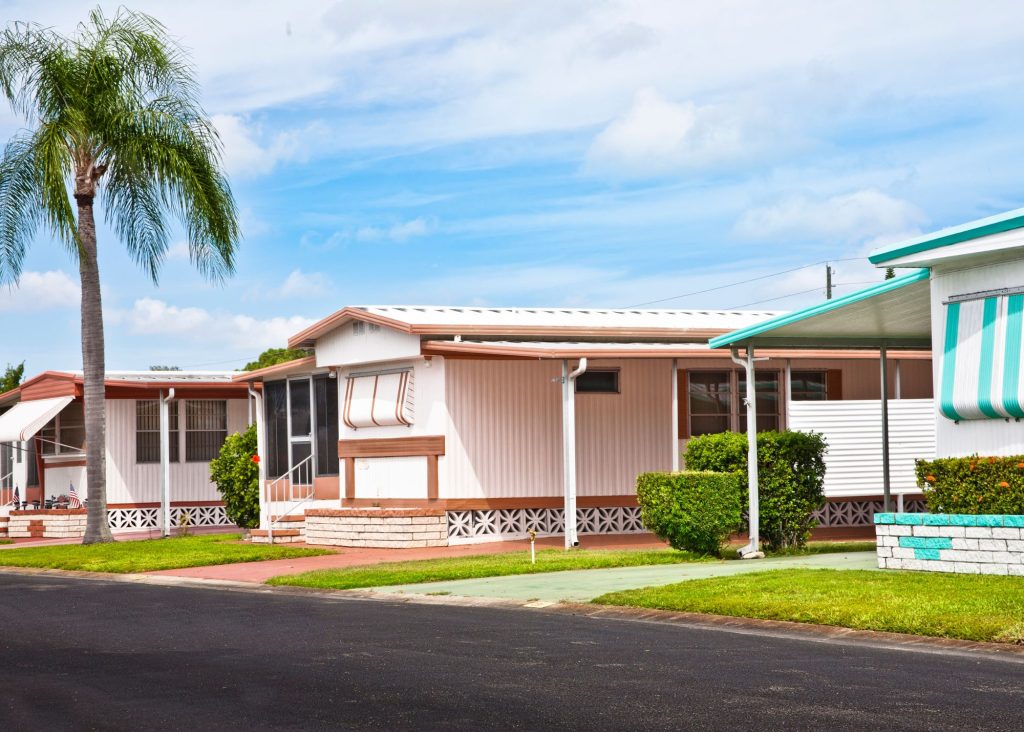
What’s a Mobile Home?
Factory-built homes offer superior value and a higher quality of life – if you know what you’re looking for.
Most people know nothing about manufactured, or “mobile,” homes. There’s a pervasive idea that the term mobile home means travel trailer or camper. In reality, the term comes from the city of Mobile, Alabama. Manufactured homes were built in bulk in Mobile after the second World War when there was a housing shortage. Today, factory made homes offer a competitive alternative to “traditional” homes (although this is a misnomer, read on to learn more) because they cost less to buy, own, and repair.
…But What About Brick and Mortar?
Often one will come across the terms “traditional” or “brick and mortar” in the context of modern homes. It is assumed by many that a home is either something “on wheels” or it’s made like a Victorian townhouse. This belief couldn’t be further from the truth!
Homes have always been made of a mix of materials, from stone to wood, but in the late 1800s everything changed. Balloon framing came in vogue in this era and soon all small or low-cost structures were built with this technique. But what is balloon framing? Instead of the sturdy, interlocking carpentry of the far past, long spindly pieces of lumber are stapled together to just barely get the job done. Nowadays, practically all homes in the American South are built via balloon framing by low-skill contractors in paid-by-the-job manner.

When talking about alternatives to mobile homes, make sure you’re not upselling a cheaply-made blow-up structure that’s made to last less time than a mobile home. Also, don’t go thinking block homes are much better than a wooden home either. The insulative properties of wooden walls filled with insulation is much better than blocks of concrete. Heat is best kept out by pockets of air and fiberglass insulation within walls. The insulative properties of wood also help keep heat at bay. Every bit helps when you’re the one paying the electric bill.
Is There Anything Good About Mobile Homes?
A mobile home has the industrial-scale savings of balloon framing and the skillful craftsmanship of specialized factory workers. You save up-front because a home made on an assembly line takes less time and has much lower on-site cost (like paying a construction crew to drive out somewhere and set up). Also, factories buy higher quality materials in bulk and are integrated into supply lines. A manufactured home also saves you money in the long run because maintenance is easier and cheaper. Simply put, the reasons a mobile home saves you money are the same as why a factory-made car saves you money. People would find you mad if you expected a car to be made on-site out of antiquated materials. However, people expect this of homes for no reason other than tradition.
The greatest thing about a mobile home is the mobile home parks. Parks are communities where everything except the physical home is taken care of for a relatively small monthly fee. For normally less than the average rent in an area, one can live in their own home while also having manicured landscaping, access to community clubhouses and pools, possibly even included RV and boat storage off-lot, and so much more. Also, there’s no property tax and no state income tax!
More About Mobile Home Communities

A mobile home community is an affordable neighborhood with an HOA and exclusive amenities. Every community is different but you can expect a clubhouse, at least one pool, gym, and an outdoor activities space. Veranda Springs is an example of an exemplar community with a lot of amenities including:
- Swimming Pool
- Clubhouse
- Well-equipped gym
- Off-Street Parking
- Pet-Friendly Environment
- Library
- Game Room
While not every community is the same, you have a choice of which one you live in! If you want to learn more about Veranda Springs just go here. To browse homes then go to this link. For general community exploration you can go to the community hub in the website menu.

